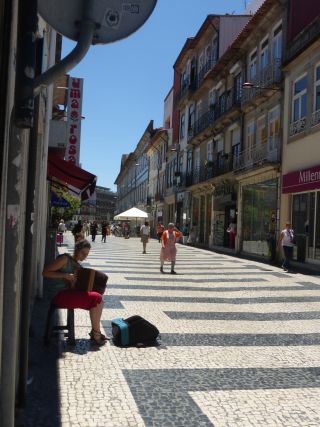Career
What Should I Do With My Life?
Feeling lost and empty can become a generative time.
Posted August 18, 2015
This question can give us heartache, whether we are in our twenties or sixties. Having no idea what to do next hurts, even as it might excite us on some level. Whether graduating from college or retiring from a long career, the road ahead may seem intimidating in its blankness. Freedom is supposed to be so desirable, yet its reality is often heavy with perplexing dilemmas.
The suffering intensifies when we encounter others our own age who announce firm, elaborate plans and display no uncertainty about where they are heading. What no one tells us is the map they are following is sheer fabrication, something they devised in order to avoid the very emptiness that weighs on us so acutely.
In actuality, we are all faking it, making up our lives as we go along. We are trying to construct an overall story that makes sense. Even those who emanate the most confidence have patched together a narrative from disparate pieces of experience, much of it found randomly and given the heft of purpose in retrospect.
After graduating from college in the mid-seventies, I made $3 an hour working as an aide in a psychiatric hospital. I took a train and two buses in the dark and cold to get there by 7am, with my flimsy white uniform under my coat. One day, a profoundly depressed woman sat beside the bed as I changed her sheets. Only a few years older then me, she stared straight ahead as though looking straight at death.
I took my time making perfect corners, trying to get her to talk to me. She did, and by the time I fluffed her pillow and arranged her bedspread, she was depicting the intricate nuances of her woe. From then on, I decided to turn my lowly tasks into entrances to people’s lives, gaining a perspective denied to the doctors, nurses, and social workers attempting to conduct their required interviews. I made beds, took blood pressures and pulses, and listened to secrets, grief, and disappointments, offering kindness and simple solace whenever I could. The exposure I got that year to varieties of travail and a multitude of life lessons became the basis for the professional life I eventually led, but I didn’t recognize this possibility at the time.
The raw material from which a life is fashioned comes from the experiences we accrue when we are feeling most aimless – when we bend to necessity and take the first job that comes along or an opportunity that arises through happenstance. It might be a short-term volunteer commitment in which a nascent skill gets discovered and then developed. From there, we could meet someone who links us to another option, entirely unforeseen, or we might try doing something we have never done before and find the stirrings of a new vocation that feels uniquely right for us.
A common trap is to tell ourselves that we should already have the answers. We sit around and condemn ourselves instead of launching into this kind of quest. This false belief often leads to paralysis of the will, along with the self-fulfilling measure of failure: “I’m a nothing who does nothing.” Throwing away whole days watching movies doesn’t help dispel this notion; succumbing to the luxury of wasted time further diminishes an already plummeting self respect. The only way to break this cycle is to shift into an attitude of curiosity and to venture out onto the stage of life.

Doing something, rather than nothing, is the beginning of momentum – even without a pre-determined direction, and especially if this is so. To the lost, I say: “Welcome to the ground of your humanity.” We reside for a brief time on a blue planet glowing in the darkness of space. Take a deep breath and watch the way the morning light crosses your kitchen table. Your circumstances are temporary, as is every hardship. The key is to leave the safety of home and put yourself out there, to let chance have its way with you and to accede to the play of fate. You will find your way.
Copyright: Wendy Lustbader. Adapted from Life Gets Better: The Unexpected Pleasures of Growing Older, Tarcher/Penguin, 2011.


